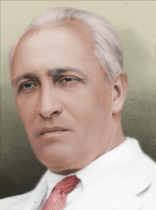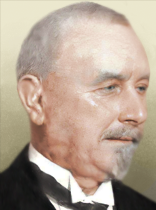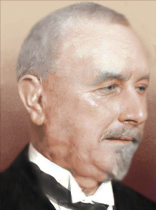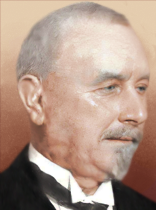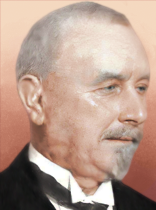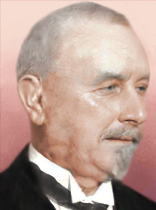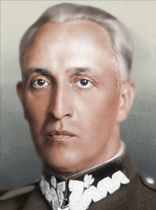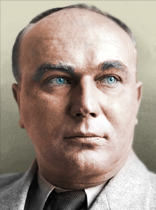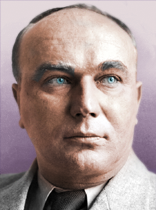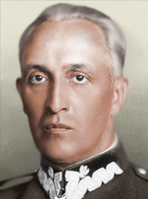Danzig
Danzig, offically The Free Hanseatic City of Danzig is a city state on the Baltic Coast born out of the Warsaw Pact agreement between the German Socialist Räterepublik and the Commonwealth of Poland. The so-called Amber of the Baltic Sea operates under a strange mix of socialism and mercantilism known as Hanseatic Socialism, making the city quite profitable since it's birth.
However, problems are rising; within the various factions of the ruling SPFHD, in the opposition centered around the Prussophile German Social Party and in the Polish Garrision who do not wish to lose more control of Gdańsk.
Historical background
OTL history
RFTL history
Another change of Hands
Though the city avoided most of the horror of the Great War, it would not avoid the chaos that arose from both the German and Russian Revolution/Civil Wars, eventually ending up in the hands of the Commonwealth of Poland in their quest of national rebirth and, more importantly, sea access. However, the German majority within the city would cause problems, especially due to no small amount of proding from the Prussians.
Rebirth of the Free City - The Warsaw Pact
This state of affairs would continue until the signing of the Warsaw Pact in 1929 between the Rotfront, led by the German Socialists, and the Intermarinium, led by Poland. With this treaty the City would become independent from Poland, becoming the Free Hanseatic City of Danzig, in refrence to its medieval past. The treaty would also stipulate:
- The city would be governed by a Volkstag, which would become dominated by the Danzig Branch of the SDP under Julius Gehl, with a fixed amount of seats being assigned to the Polish minority in the city.
- While both factions would be responsible for the defence of the city, the Polish Garrision under Gustaw Orlicz-Dreszer would become the main armed forces in the city proper.
- While being part of the Pact, Danzig would not be part of either the Rotfront or the Intermarinium, instead being a neutral port for the free flow of global capital, albeit with a slight prefrence to the members of both factions.
With Danzig being an important trade port run by a Social Democratic party a new system would arise, Hanseatic Socialism, mitigating the contradictions that would usually come with such a situation. This would prove quite prfoitable for the city, along with the fact that it was backed by two major political and economic blocks in Europe.
The tense set-up - Party, Prussians and Poles
However, within said Social Democratic party, issues would arise between it's various factions; how much power should the worker run manufactories and unions wield, how open and democratic should the Volkstag be, and how much power should the party itslef exert over the city, especially in defence against possible threats of the Prussophilic German Social Party.
The German Social Party is the main oppositions party led by Arthur Greiser, and has long been suspected of being aided by the Prussian goverment. If they are to win the 1937 elections it is feared that they shall shift policies to a pro-Prussia, pro-Birkeneid position, potentially leading to drastic action from the Polish Garrision.
The Poles weren't entirely satisfied with the Gdansk set-up and both General Orlicz-Dreszer's Sanationist leanings and the inflow of radicals from Poland like Jan Kasprowicz have made the position of the Garrision not as neutral as the signitories of the Pact wished, but another complication in the City's future. They are still loyal to the Warsaw Pact as a whole, but the question remians, how much they would change if given the reins of power?
Content
Starter Spirits
The Amber of the Baltic Sea
Amidst the burning fire of the Eurasian Civil War, the city of Danzig slipped through German fingers into the hands of the Polish. Yet the coalish fragments that spilt from the forge of Europe proved too hot to handle alone; therefore, as a sign of friendship between kindred revolutionaries - as well as a way to smooth over a particularly nasty border dispute - in 1929, the joint powers of the Warsaw Pact drew up a plan to smith the glowing embers of the trade port into a glistening gem. Thus, with a handshake and a measuring chain, the Free Hanseatic City of Danzig was born, and alongside it a particularly strange model of government: Hanseatic Socialism.
Moreso a set of exceptions than an actual ideology, Hanseatic Socialism is the attempt at reconciling socialist principles with the running of a trade centre plugged into the global flow of capital. Despite the rather unorthodox methods, it appears that the Levite brainchild has borne fruit—Danzig has flourished beneath the Red Hansa, as foreign traders rub shoulders with worker-ran manufactories. Regardless of the contradictions inherent in its birth, it appears that as long as the money flows and the boat is not rocked, the "Amber of the Baltic Sea" will remain as the crown jewel of the Warsaw Pact.
|
Under the Marshal's Gaze
Despite the Polish releasing their grip, their hand remains wrapped around Danzig's neck. While the reservation of a certain amount of seats in the Volkstag to the Polish minority is amenable to most, there exists an all-seeing eye above Danzig, the eye of Józef Piłsudski. A part of his army is permanently stationed as watchmen of the Warsaw Pact's bastard child, and lead by General Gustaw Orlicz-Dreszer, the Polish Garrison in the Free Hanseatic City of Danzig has only made politics more complicated.
A man with visible Sanationist persuasions, Orlicz-Dreszer and his merry men have overseen the boom of a radicalized Polish populace as the rejects of the Bruno Jasieński dominated avant-garde flocked to Danzig in droves, viewing it as a safe haven for their radical thought. On paper, the Polish Garrison is loyal solely to the Warsaw Pact and exists only to protect Danzig from Prussian aggression; yet no man can serve two gods, and if push comes to shove, only Providence can tell where Orlicz-Dreszer's loyalties lie.
|
Events
Politics
Important Parties
| Party Name | Leader | Ideology | Details | Country |
|---|---|---|---|---|
| Vindi-varii (Mężowie Wenedcy) [Vistula Veneti] |
Gustaw Orlicz-Dreszer
|
Fiuminism
Popularity: 3.00% |
Gedanum
(the Dominium of Gedanum) | |
| Sozialdemokratische Partei der Freien Hansestadt Danzig (Gewerkschaften) SPFHD(G) [Social Democratic Party of the Free Hanseatic City of Danzig (Unions)] |
Julius Gehl
|
Social Anarchism
Popularity: 2.00% |
The wing of the party that represent the more radical, decentralised aspects of the Trade Unions. | Danzig
(the Free Hanseatic City of Danzig) |
| Sozialdemokratische Partei der Freien Hansestadt Danzig (Die Rote Fahne) SPFHD(RF) [Social Democratic Party of the Free Hanseatic City of Danzig (The Red Flag)] |
Julius Gehl
|
State Socialism
Popularity: 8.00% |
This wing of the party represents members, such as Anton Plenikowski, who belive that the party should take more control of both the political and economic aspects of the city state, taking a harsh stance against both opposition parties an dissident trade unions. | |
| Sozialdemokratische Partei der Freien Hansestadt Danzig (Volkswacht) SPFHD(V) [Social Democratic Party of the Free Hanseatic City of Danzig (People's Watch)] |
Julius Gehl
|
Spartakism
Popularity: 11.00% |
More in line with the classical Social Democratic theory, this wing of the party will give more powers to the unions, giving them seats in the lower house of parliment and reducing the governmental role of the Senate | |
| Sozialdemokratische Partei der Freien Hansestadt Danzig SPFHD [Social Democratic Party of the Free Hanseatic City of Danzig] |
Julius Gehl
|
Democratic Socialism
Popularity: 19.00% |
Current Ruling wing of the Party, ruling since the founding of the city. Responsible for the Hanseatic Socialism model of governance, which is based upon Paul Levi's Normalisation Policy. | |
| Sozialdemokratische Partei der Freien Hansestadt Danzig (Liberale) SPFHD(L) [Social Democratic Party of the Free Hanseatic City of Danzig (Liberals)] |
Julius Gehl
|
Liberal Socialism
Popularity: 10.00% |
||
| Polski Garnizon w Wolnym Hanzeatyckim Mieście Gdańsk Polski Garnizon [Polish Garrison in the Free Hanseatic City of Gdańsk] |
Gustaw Orlicz-Dreszer
|
Initally / after the coup Provisional Goverment
After Consolidation Anocracy
Popularity: 12.00% |
Initally / after the coup
Danzig (the Free Hanseatic City of Danzig) After Consolidation Gdańsk (the Free Hanseatic City of Gdańsk) | |
| Deutschsoziale Partei DSP [German Social Party] |
Arthur Greisser
|
Revolutionary Nationalism
Popularity: 21.00% |
Danzig
(the Free Hanseatic City of Danzig) | |
| Deutschsoziale Partei (Lichtmenschen) DSP(L) [German Social Party (Light People)] |
Arthur Greisser
|
Reactionary Populism
Popularity: 9.00% |
Laws
Diplomacy
Geography and Industry
Geography
Industry
Military
Army
Per the Warsaw Pact, both the Rotfront and the Intermarium are responsible for Danzig's defence, however there is a Polish Garrison in the city to actively defend the city under General Gustaw Orlicz-Dreszer. The Garrision consists of a single division of 4 Militia Regiments.
Generals
| Skill | Attack | Defence | Planning | Logistics | Traits | |
|---|---|---|---|---|---|---|
Gustaw Orlicz-Dreszer
|
1 | 1 | 2 | 1 | 1 |
|
Technology
- Basic Infantry equipment
- Infantry Equipment I
- Motorised
- Support equipment
- Engineers
- Recon 1
- Towed Artillery
If "No Step Back" DLC is not active:
- Great War Tank
- L. Tank I
If "No Step Back" DLC is active:



